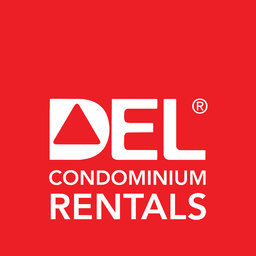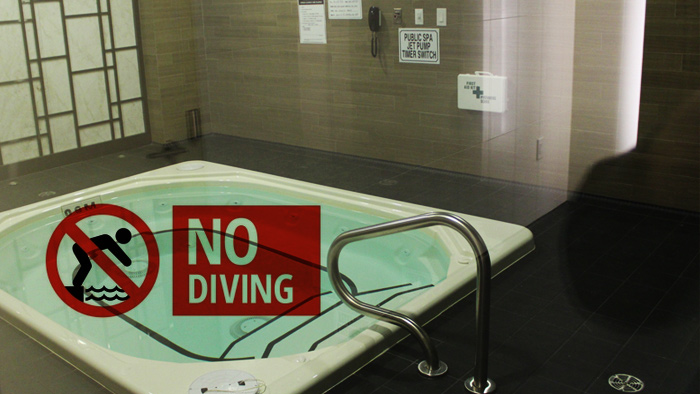25 May Condominium Rules: A Primer
We’re all used to a few rules in a newly rented Toronto home: no smoking, being mindful about pets, keeping the noise down in multi-unit buildings if it’s after ten or eleven at night. But renting a Toronto condominium unit can come with a few more rules than you’re expecting: the condo corporation rules and by-laws that anyone living in the building has to follow.
It’s a quirk in the standard landlord-tenant relationship, so here’s a quick primer on what condo by-laws are, how they work, how they interact with your landlord’s needs, and what they mean to you as a condominium renter.
What are condominium rules and by-laws?
Condominium buildings are, legally, a bit of a weird co-op situation: a lot of people, who own their own homes, but have common property like amenities, the lobby, the elevators, and, well, the halls. That shared property has to be maintained together, so they set a bunch of rules to make sure everyone’s on the same page.
Most condos start with a list of basic rules written by the building developers, with the goal of keeping the property value high and the maintenance costs as low as possible. If your basic condo development is a board game, think of those as the rules that come with the box.
But once the condo board—a group of unit owners who volunteer to help run the building on behalf of all the owners—takes over, they can vote to add more rules for the building. Think of these as house rules that the board game players agree to mutually enforce. These house rules can range from setting the maximum number of people who can live in your unit, to being asked to hang only white exterior curtains in your windows—a common requirement in low-rises—to banning holiday decorations like Christmas wreaths on your unit’s outside doors.
Sometimes they’re weird. Sometimes they’re great. No, you probably can’t have that barbeque on your balcony.
How do I handle that?
The best bet, when renting a condo unit, is to ask your landlord what the rules and by-laws of your particular condo building are. They’ll have that document tucked away somewhere, and can give you a copy to check out.
Make sure your landlord shares with you—or gives you permission to read and open—documents from your property manager that relate to the building, so you can keep up with what’s doing in terms of rules, requests, and building needs (white curtains are out! Polka dots are in!).
So what happens if I break ’em?
The condo board—which is made up of representatives from your neighbours—will get a little peeved, and send you a note, or send your landlord a note, about cutting that out. At which point it will be a good idea to cut that out.
Different condo boards have different ways of handling repeated rule-breakers. The most common is a fine that the owner has to pay.
Who trumps who? What if my landlord and the condo board are asking for different things?
You’re responsible to your landlord, but your landlord is responsible to their condo corporation. If they want you to hang those white curtains, damnit, no matter what the condo board says about polka dots, that’s going to be awkward, but that’s going to be between them and the condo board. They’ll be paying any fines that come up, not you.
Hey, I live here. Do I get a vote?
Alas, nope. Condominium corporations recognize the owner of the unit as the person who gets to kick in on condo board decisions, not the occupant. It’s not unheard of for tenants to attend condo board meetings—after all, it’s your home—but unless your landlord has very kindly given you their proxy vote, no love.
So your best bet if you’re having trouble with your unit’s common areas—or have a really great idea for the building you’re in—is to attend your condo board meetings, but still put those thoughts through your landlord.
But I have to follow the rules.
Yup. Your landlord is responsible for making sure the rules are followed in the space they own—which means making sure you’re following them. And not following the rules of the greater community, aside from being kind of antisocial and not the best way to make your space in your new neighbourhood, makes trouble for your landlord.
What about my rights under the Residential Tenancies Act?
This is where the whole thing gets a little tricky.
While the condominium corporation in your building has an effect on your common areas, it isn’t your landlord. Your landlord leases you your unit and their access to the common areas. It’s like borrowing your friend’s guest passes to their gym to work out: You don’t really have standing if you have beef with the gym management. So, the same rights you have in a disagreement with a landlord don’t quite apply here.
According to the Federation of Metro Tenants’ Associations, the relationship between the Ontario Residential Tenancies Act and the Condominium Act is complicated: both laws say conflicting things about which one takes precedence if they go head to head. The condominium board isn’t responsible to the Residential Tenancies Act; your landlord is. The condo board isn’t really responsible to you, but to your landlord. Nobody, to date, has talked the Landlord-Tenant Board into hearing a case against a condo board.
So what’s the best approach?
Find out early, in writing, and clearly what’s expected of you as a tenant in the building you’re in—and make sure they’re rules you can live with before signing a lease. The rules of a condo tell you what kind of community the people living there want to build, and if that doesn’t sound like your idea of a good time, it may not be the right space for you.
Ideally, go through your landlord for any questions or issues about your unit, stay in touch, and treat your new space lovingly; that’ll get you most of the way there.



No Comments